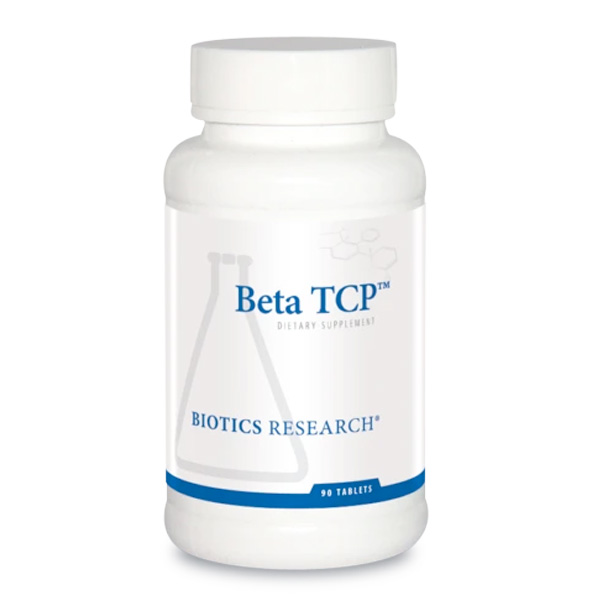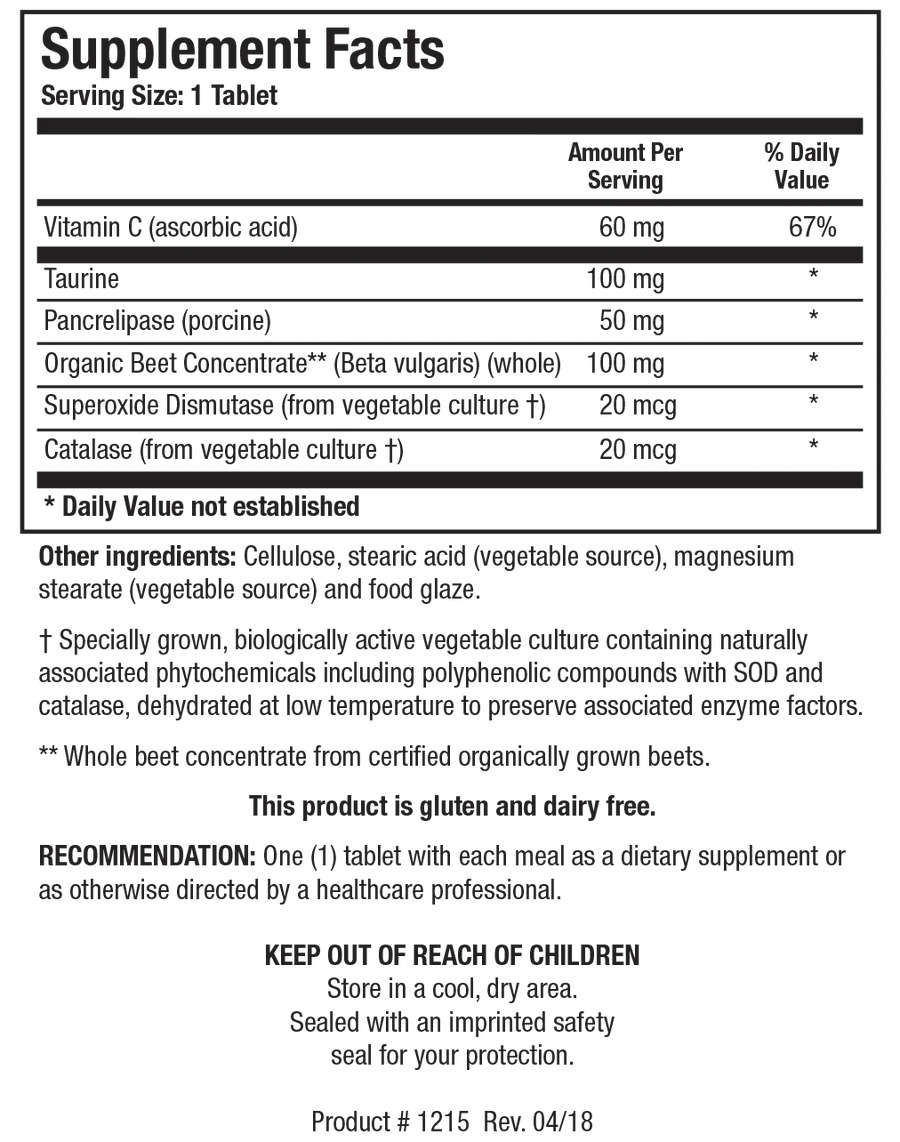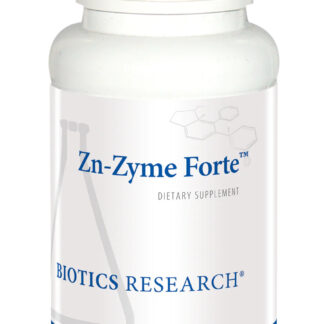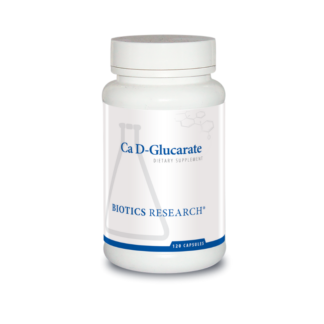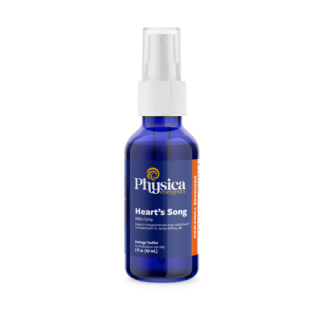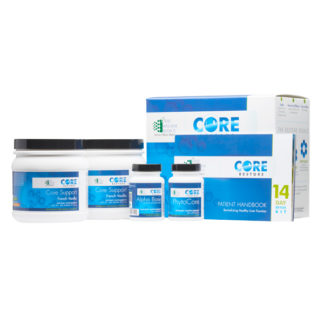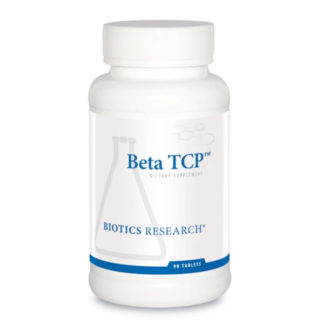Description
Beta-TCP ™ supports both healthy bile flow, and the normal bile acid to cholesterol conversion. It contains both digestive and antioxidant enzymes (vitamin C), along with Taurine and organic beet concentrate.
Beta-TCP ™ Ingredients:
Vitamin C (ascorbic acid), Taurine, Pancrelipase (porcine), Organic Beet Concentrate** (Beta vulgaris) (whole), Superoxide Dismutase (raw organic vegetable culture†) and Catalase (raw organic vegetable culture†).
†Specially grown, biologically active vegetable culture containing naturally associated phytochemicals including polyphenolic compounds with SOD and catalase, dehydrated at low temperature to preserve associated enzyme factors.
** Whole beet concentrate from certified organically grown beets.
Cellulose, stearic acid (vegetable source), magnesium stearate (vegetable source) and food glaze.
This product is gluten and dairy free.
Betaine
Beets are a concentrated source of Betaine, which functions in the methylation of homocysteine, converting it into methionine and dimethylglycine. An elevated level of homocysteine, termed homocysteinemia, is a risk factor for cardiovascular complications.(1) Dimethylglycine, in turn, functions as a methyl donor, thus aiding in both the detoxification and immune pathways. Betaine is often referred to as a “lipotropic factor” as it assists the liver in the processing of fats. Studies with betaine have correlated its use with liver protection. For example in one study, subjects exposed to carbon tetrachloride (CCl4), were followed with an oral treatment of betaine. They were observed to have a significant reduction in liver necrosis, which was attributed to betaine use.(2) In another study, following CCl4 injection in test animals, supplemental betaine was observed to reduce liver triglycerides as well as centrilobular hepatic lipidosis.(3)
Fiber and the Binding of Bile Components
Certain kinds of dietary fiber bind bile salts. Examples include pectin (found in fruits and berries), hemicelluloses (found in cereal grains), and certain types of fiber that occur in legumes. When the diet is rich in partially soluble fiber, more bile is excreted (not reabsorbed). As a consequence, blood cholesterol levels may be reduced to account for more bile salt formation, consequently slowing the development of atherosclerosis.
Nutritional Support of Bile Formation
Bile:
Bile salts, along with other components, including cholesterol, electrolytes and water are stored in the gallbladder. Bile salts act as an enzyme aide, and serve to enhance the absorption of fatty acids and some fat-soluble vitamins. Bile also serves as a fat emulsifier, thus increasing the surface area of the fat, and allowing it to become water-soluble. Thus bile aids aide in the absorption of fatty acids and cholesterol via the formation of micelles. The micelles, soluble in chime, are then easily absorbed by epithelial cells. Bile also serves in a protective mechanism, functioning to maintain the intestinal barrier against invading microorganisms.(4,5)
Pancrelipase:
(Pancreatic lipase) Pancrelipase functions in the hydrolysis of triacylglycerol in the presence of bile salts, and therefore functions in the absorption of dietary fats and lipids. Accordingly, in the presence of gastric lipase, triacylglycerol is hydrolyzed to monoglycerides and free fatty acids. Pancrelipase preparations have been shown to reduce fecal fat, indicating an improvement in the fat digestive process with the use of Pancrelipase.(6,7)
Taurine:
Taurine is a highly charged cysteine derivative, synthesized in vivo from the essential amino acid methionine. When conjugated to bile acids, an increased polarity of the bile acid results, thus increasing its amphipathic (detergent-like) properties. In one study dietary taurine was demonstrated to enhance the degradation of cholesterol and subsequent excretion via bile acids.(8) In animal studies supplementary taurine was demonstrated to both increase serum HDL, and significantly decrease total cholesterol.(9) Additionally, a significant increase in the concentration of fecal total bile acids has been observed with taurine supplementation.(10) The action of taurine on serum cholesterol was attributed to the facilitation of hepatic cholesterol 7-alpha hydroxylase activity.(11)
Vitamin C:
The enzyme noted above, cholesterol 7-alpha-hydroxylase, is the enzyme responsible for the initial step in the catabolism of cholesterol to conjugated bile acids. This enzyme is a vitamin C dependent enzyme. In studies supplemental vitamin C was shown to reduce total plasma cholesterol and triglycerides, which was correlated to a marked modification in apolipoprotein patterns.(12,13) In patients with gallstones, vitamin C was shown to influence the environment of the gallbladder, resulting in a higher concentration of phospholipids, along with a changed ratio of bile acids, indicating an influence of vitamin C on the formation of gallstones.(14) Additionally, in women, an inverse correlation between serum ascorbic acid and the prevalence of both clinical and asymptomatic gallbladder symptomology was observed.(15)
These statements have not been evaluated by the Food and Drug Administration. These products are not intended to diagnose, treat, cure, or prevent any disease.
